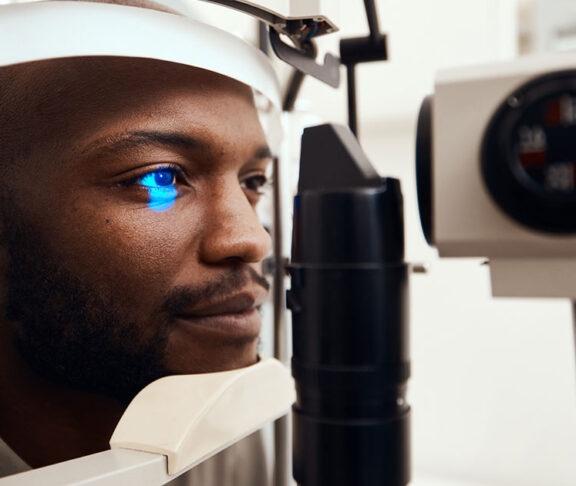
Glaucoma is a complex eye condition that damages the optic nerve and can lead to vision loss if not properly managed. Often called the “silent thief of sight,” it typically develops slowly and without noticeable symptoms in its early stages. But one question many patients have is whether glaucoma can progress at different rates in each eye.
Understanding Glaucoma
Glaucoma is most commonly caused by increased pressure within the eye, known as intraocular pressure (IOP). Over time, this pressure can damage the optic nerve, which is responsible for transmitting visual information from the eye to the brain. There are different types of glaucoma, with primary open-angle glaucoma being the most common.
Can One Eye Be Worse Than the Other?
Yes, glaucoma can progress more quickly in one eye than the other. While it typically affects both eyes, it does not always do so equally or at the same rate. One eye may experience more advanced damage while the other remains relatively stable, especially in the early stages of the condition.
This difference in progression can be influenced by several factors. Variations in intraocular pressure (IOP) between the eyes can contribute to uneven optic nerve damage. Additionally, structural differences in the optic nerve or variations in blood flow may lead to one eye being more susceptible than the other. A history of trauma or inflammation in one eye can also accelerate progression on that side. In some cases, anatomical differences such as corneal thickness or the angle at which fluid drains from the eye can impact how quickly glaucoma advances.
Even in individuals with normal-tension glaucoma, where eye pressure stays within a normal range, one eye may still show more damage than the other. This further highlights the importance of individualized monitoring and treatment for each eye.
Why Early Detection Is Important
Because glaucoma often progresses silently, regular eye exams are critical to catching it early. Through comprehensive testing, including pressure measurements and optic nerve imaging, your optometrist can monitor each eye’s health individually and look for signs of asymmetrical progression. Early detection not only helps preserve vision but also allows for personalized treatment plans tailored to the needs of each eye.
Treatment and Monitoring
If glaucoma is diagnosed, treatment may involve medicated eye drops, laser therapy, or surgery to lower intraocular pressure and prevent further optic nerve damage. Your eye doctor will closely monitor each eye over time and may adjust treatment strategies if one eye shows signs of faster progression. Frequent follow-ups and detailed imaging can help ensure both eyes remain stable and that any differences in progression are addressed promptly.
Protect Your Vision at Specs Appeal
While glaucoma usually affects both eyes, it can progress more quickly in one than the other. At Specs Appeal, we take the time to examine each eye thoroughly, monitor your condition, and tailor treatment to protect your vision for the long term.
Schedule a comprehensive eye exam with Specs Appeal to stay ahead of glaucoma. Contact our office in Decatur, Georgia, by calling (678) 846-2000 to book an appointment today.







